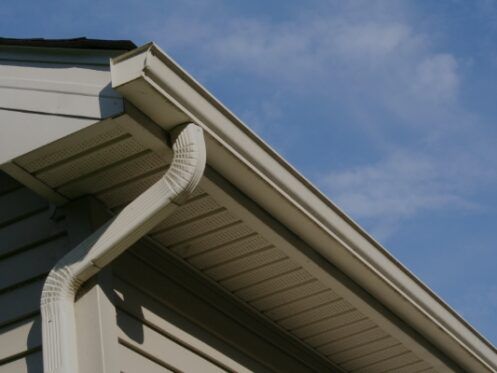When it comes to maintaining the integrity of your home, one crucial aspect that demands attention is your roof. Over time, wear and tear can compromise its performance, leading to leaks, drafts, and energy inefficiency. A well-executed roof replacement can enhance your home’s aesthetics, energy efficiency, and overall value. However, the process can be daunting without proper preparation. Below are tips to help you prepare for a successful roof replacement project in Pennsylvania.
1. Assess the Urgency
Evaluating the situation’s urgency is essential before diving into a roof replacement project. Factors such as the age of your roof, the extent of damage, and the frequency of repairs can guide this decision. If you’ve been dealing with recurrent leaks or noticed extensive shingle damage, it might indicate that a replacement is overdue. We recommend engaging a professional roofing contractor for a thorough inspection. They can provide an expert assessment of your roof’s condition and help you determine if a replacement is necessary.
2. Research and Choosing the Right Roofing Material
Selecting the appropriate roofing material is a critical decision that influences your home’s appearance, durability, and energy efficiency. Pennsylvania’s climate involves a range of weather conditions, from humid summers to cold winters. Choosing a material that can withstand these variations is vital. Asphalt shingles, metal roofing, and slate tiles are popular for their durability and aesthetics. When deciding, consider factors such as lifespan, maintenance requirements, budget, and energy efficiency.
3. Obtain Multiple Quotes
Securing quotes from various roofing contractors gives you a better understanding of the costs and prevents overcharging. Reach out to reputable roofing companies in Pennsylvania and provide them with detailed information about your project. A reliable contractor will visit your home to assess the scope of work before providing an accurate quote. Don’t solely focus on the price. You should also consider the contractor’s reputation, experience, and the quality of materials they intend to use.
4. Check Contractor Credentials
Verify that the contractors you’re considering are licensed, insured, and have a proven track record of successful roof replacement projects. Additionally, check for manufacturer certifications, as these indicate that the contractor meets the manufacturer’s requirements for installation expertise. Working with a certified contractor ensures that the warranty on your chosen roofing material remains valid.
5. Plan for the Project Timeline
A typical residential roof replacement in the Pennsylvania area can take a few days or more. The timeline depends on factors like the size of your home, the complexity of the roofing system, and weather conditions. Discuss the projected timeline with your chosen contractor and factor in potential delays due to adverse weather. Clear communication about the schedule will help you prepare accordingly and make the necessary arrangements. A roof replacement can be a bit noisy, so you’ll want to plan ahead.
6. Prepare Your Home’s Exterior
A roof replacement project can generate noise, debris, and increased foot traffic around your property. Clear your driveway and any walkways near the work area to minimize the disruption. Doing this allows easy access for contractors and prevents accidents. Additionally, consider relocating any outdoor furniture or plants that might be in the way. These precautions ensure a safer environment for your family and the roofing crew.
7. Communicate With Your Neighbors
Roof replacement projects can inadvertently impact your neighbors due to the noise and visual changes. It’s courteous to inform your neighbors about the upcoming project, providing them with an estimated timeline and details about the work. Open lines of communication help manage expectations and address any concerns they might have.
8. Protect Your Belongings
Vibrations from roofing work can resonate through your home, potentially causing items to shift or fall. Safeguard your valuables and belongings by securing them properly. Take the time to assess rooms directly beneath the roof, as they are more susceptible to vibrations. Consider temporarily relocating fragile items, artwork, and electronics to prevent accidental damage.
9. Consider Temporary Accommodations
While most roof replacement projects allow homeowners to stay in their homes, evaluating whether staying put is the best option for you is essential. If the noise, vibrations, or presence of contractors becomes overwhelming, consider temporary accommodations. It could include staying with family or friends, booking a nearby hotel, or even renting short-term accommodation. Your comfort and peace of mind throughout the project should be a priority.
10. Prepare for Weather Changes
Pennsylvania’s weather can be unpredictable, and conditions can influence the success of your roof replacement project. Rain, snow, or extreme temperatures might impact the construction timeline. Discuss contingency plans with your contractor in case of adverse weather. Reputable contractors will monitor the weather forecast closely and make informed decisions to ensure their crew’s safety and the work’s integrity.
11. Create a Project Budget
Before embarking on a roof replacement, it’s important to create a realistic budget covering all project aspects. This includes the cost of materials, labor, permits, disposal of old roofing materials, and potential unexpected expenses. A well-planned budget prevents overspending and allows you to allocate funds appropriately. Share your budget with potential contractors during the quote process to ensure their estimates align with your financial plan.
12. Arrange for Waste Disposal
A significant amount of old roofing material and debris will be generated during a roof replacement. Check with your roofing contractor to find out about their waste disposal process. Reputable contractors usually make arrangements to remove and dispose of old roofing materials. Ensuring responsible waste disposal keeps your property tidy and contributes to environmental sustainability.
13. Discuss Roof Ventilation Options
Proper roof ventilation is crucial for maintaining a comfortable indoor environment and preventing moisture-related issues. While discussing the project with your contractor, inquire about the ventilation options suitable for your home. Adequate roof ventilation can improve air quality, reduce energy consumption, and extend the lifespan of your new roof.
14. Document the Project
Consider documenting the roof replacement project with photographs or videos. This visual record can serve as a reference in case you encounter any issues. It can also be valuable if you decide to sell your home, as it provides proof of the roof’s age and condition.
Undertaking a roof replacement project for your Pennsylvania home requires thorough preparation to ensure a smooth and successful experience. However, with the help of a reputable company, you can navigate the process seamlessly and achieve the desired results. At Warren Thompson & Son Roofing & Siding, we understand the importance of meticulous planning and execution regarding roof replacements. Our experienced professionals are dedicated to guiding you through every step of the journey. With years of industry expertise, we deliver top-notch roofing solutions tailored to Pennsylvania’s unique climate and architectural considerations.
We also offer comprehensive services beyond roof replacements. From roof repairs to gutter installations, we provide a complete package to enhance and protect your home. Our commitment to quality and customer satisfaction ensures that your specific needs are met with the utmost care and professionalism.
Located in Alpha, NJ, we are proud to serve New Jersey as well as Pennsylvania. Contact Warren Thompson & Son Roofing & Siding today to schedule your appointment.

